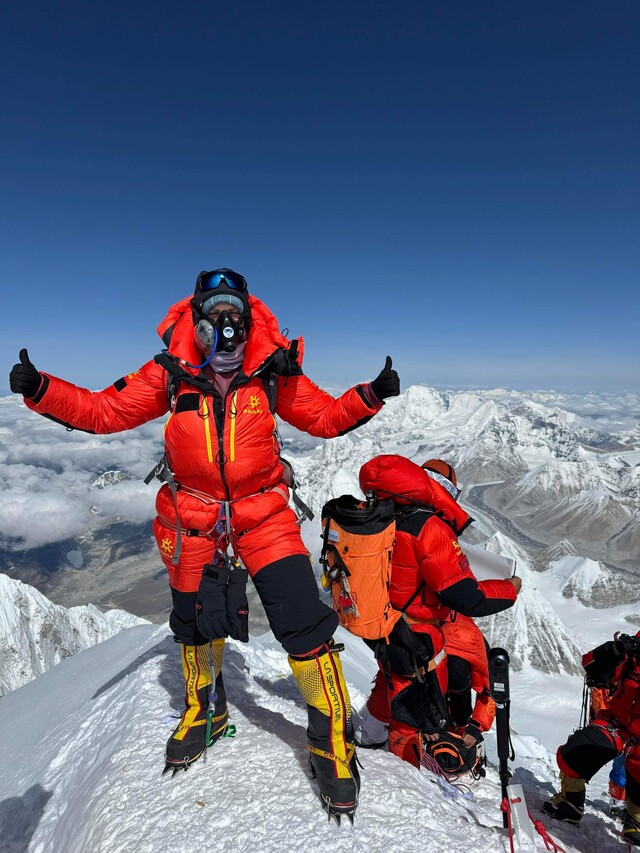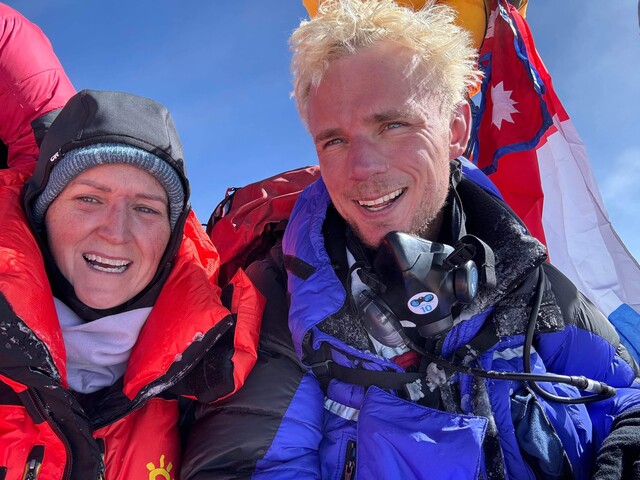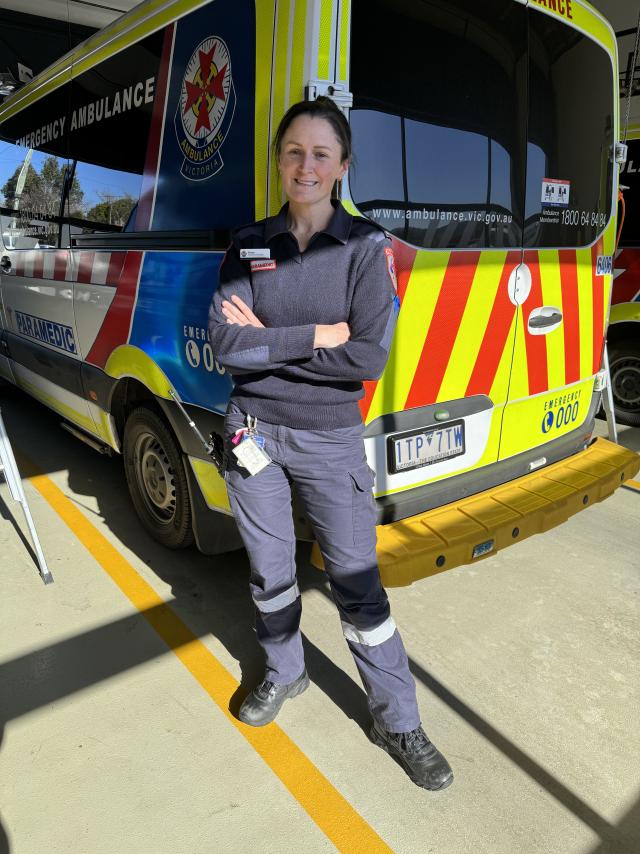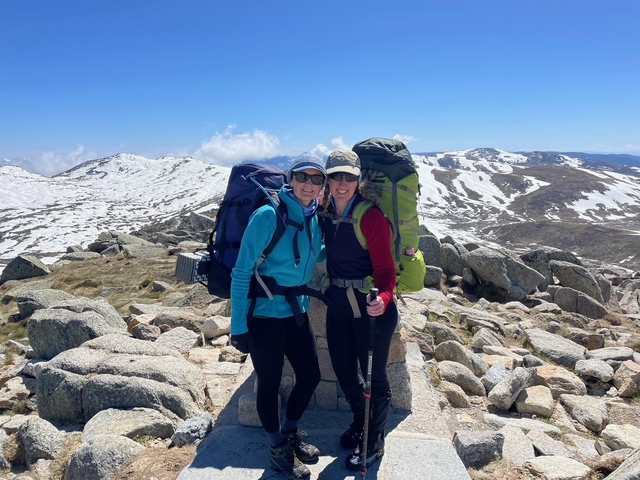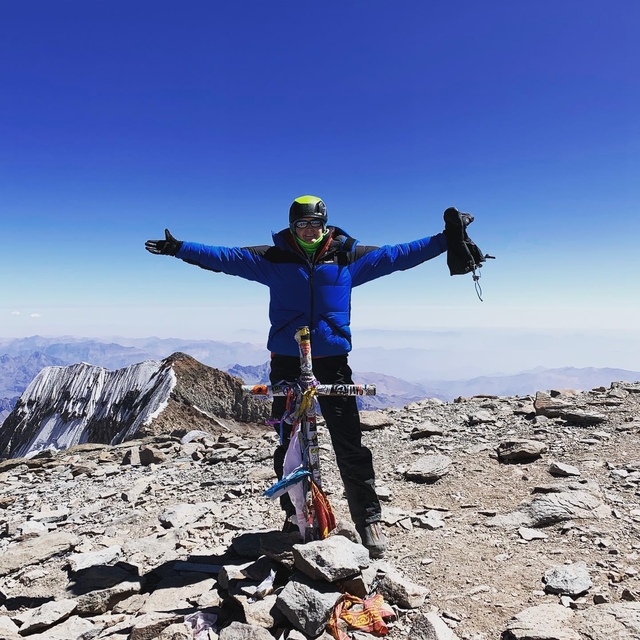By Dongyun Kwon
A Montrose resident conquered the summit of Mount Everest in May.
Ambulance Victoria advanced life support paramedic Alison Bowen has been working her way through the Seven Summits Challenge, climbing the highest peak on each of the seven continents.
Mt Everest in Asia was her fifth summit out of seven.
Ms Bowen said the experience of reaching the summit of Everest was “breathtaking”.
“Reaching the summit was absolutely surreal,” she said.
“You see so many documentaries and photos online but once you’re there, it’s amazing to see it all with your own eyes and know you’re standing above the 8,000-metre-tall mountains around you.”
She and her team landed in Nepal on 3 April and started acclimatising, trekking and doing rotations up the mountain, and finally stepped on the top of Everest on 21 May.
The paramedic took about nine months of training beforehand, which helped her physically get ready.
“I probably started maybe nine months out, but then had a really focused training program from about six months out,” Ms Bowen said.
“I did a lot of training in the hills, particularly two hills around Healesville, Mt St Leonard and Mt Juliet. I’ve done lots of climbs up those with the backpack.
“Then, I did a lot of hiking around the Dandenong Ranges. Lots of really long training sessions, up to eight to 10 hours a day, walking around hills with a heavy backpack on.”
She also did strength training programs in the gym as well as treadmill and stairmaster training.
Ms Bowen said although she prepared herself physically, she found the journey mentally and emotionally challenging.
“Not just being away from your family and friends, but also there’s a lot of danger involved in it,” she said.
“There’s always the prospect of yourself dying, this would put my family through an imaginable pain which would have made the climb even more difficult.
“It’s also quite a harsh environment to be in for a prolonged amount of time, the higher you climb, the more difficult breathing becomes.
“It’s really beautiful being in the mountains, and the Himalayas are spectacular, but when you’re there for an extended period of time, you get a bit emotionally and psychologically tired.”
Ms Bowen repeatedly told herself the same quote over and over again in order to keep herself going, ‘doubt kills more dreams than failure ever will’.
“When there is a lot of danger and risk involved, it can be easy to doubt yourself but I didn’t want to turn around just based on doubt,” she said.
“I just kept telling myself to keep going until I fail and I didn’t fail in the end because I didn’t allow my doubt to take over me.
“Just knowing that it was a once in a lifetime opportunity, it really made it count and put all my effort into it.”
Ms Bowen conquered Mt Kilimanjaro in Africa in 2008, Mt Elbrus in Russia, the highest peak in Europe, in 2013, Mt Aconcagua in Argentina, the highest peak in South America, in 2020 and Mt Kosciuszko in Australia in 2007 and 2022.
She failed to reach the top of Mt Aconcagua in 2018 and tried once more in 2020 and successfully stepped on the summit.
“The conditions were really tough [in my first attempt], so they had a lot more snow than usual and the accumulation of the tough conditions just wore me down a bit,” Ms Bowen said.
“So, by the time it came to summit day, I just wasn’t travelling as fast as the group needed to go, I wasn’t feeling sick but I just got to a point of accumulated fatigue and tiredness.
“A few of us got turned around and then probably about half the group went on to the summit.”
The experience as a paramedic, especially the night shift experience, helped her with mountaineering.
On the summit night for Mt Everest, her team left at 8.30pm and got to the summit at 8am.
“It was like a night shift. I’ve done plenty of night shifts. I felt like the shift work helped me be okay with being awake all night and walking all through the night,” the paramedic said.
“As a shift worker, I have a lot of weekdays off whereas most people don’t have weekdays off, so it’s great to have another activity or sport that I can do on my own.
“It’s hard to commit to being in a team sometimes when you do shift work, but having a sport like mountaineering or trekking, you can do that anytime, any day of the week with or without other people.”
Ms Bowen said she has learnt she is capable of so much more than she thinks throughout the Seven Summits Challenge.
“Everest was always the pinnacle, the hardest thing that I thought I could do, and it was absolutely the hardest thing I’ve ever done but now I’ve done it,” she said.
“I know I can do that and I can do more.
“I think a lot of people sell themselves short and think that they couldn’t do the hardest thing that they can imagine but I think they can!”
As part of the Seven Summits Challenge, Ms Bowen is planning to conquer Denali in Alaska and Vinson Massif in Antarctica after a well-deserved rest.

